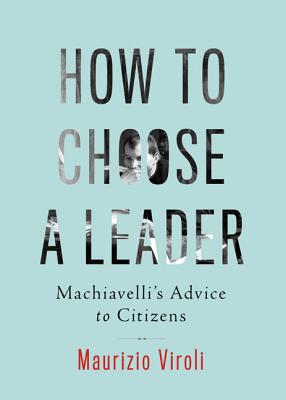Expedite your nonfiction book discovery process with Readara interviews, summaries and recommendations, Broaden your knowledge and gain insights from leading experts and scholars
In-depth, hour-long interviews with notable nonfiction authors, Gain new perspectives and ideas from the writer’s expertise and research, Valuable resource for readers and researchers
Optimize your book discovery process, Four-to eight-page summaries prepared by subject matter experts, Quickly review the book’s central messages and range of content
Books are handpicked covering a wide range of important categories and topics, Selected authors are subject experts, field professionals, or distinguished academics
Our editorial team includes books offering insights, unique views and researched-narratives in categories, Trade shows and book fairs, Book signings and in person author talks,Webinars and online events
Connect with editors and designers,Discover PR & marketing services providers, Source printers and related service providers

How to Choose a Leader: Machiavelli's Advice to Citizens
Political Science > Political Process - Campaigns & Elections
- Princeton University Press
- Hardcover
- 9780691170145
- 7.2 X 5.2 X 0.8 inches
- 0.55 pounds
- Political Science > Political Process - Campaigns & Elections
- (Single Author) Asian American
- English
Readara.com
Book Description
Twenty essential tips for picking great leaders from the father of modern politics
One of the greatest political advisers of all time, Niccol� Machiavelli thought long and hard about how citizens could identify great leaders--ones capable of defending and enhancing the liberty, honor, and prosperity of their countries. Drawing on the full range of the Florentine's writings, acclaimed Machiavelli biographer Maurizio Viroli gathers and interprets Machiavelli's timeless wisdom about choosing leaders. The brief and engaging result is a new kind of Prince--one addressed to citizens rather than rulers and designed to make you a better voter.
Demolishing popular misconceptions that Machiavelli is a cynical realist, the book shows that he believes republics can't survive, let alone thrive, without leaders who are virtuous as well as effective. Among much other valuable advice, Machiavelli says that voters should pick leaders who put the common good above narrower interests and who make fighting corruption a priority, and he explains why the best way to recognize true leaders is to carefully examine their past actions and words. On display throughout are the special insights that Machiavelli gained from long, direct knowledge of real political life, the study of history, and reflection on the political thinkers of antiquity.
Recognizing the difference between great and mediocre political leaders is difficult but not at all impossible--with Machiavelli's help. So do your country a favor. Read this book, then vote like Machiavelli would.
Author Bio
Maurizio Viroli is Professor Emeritus of Politics at Princeton University, Professor of Government at the University of Texas (Austin) and Professor of Political Communication at the University of Italian Switzerland (Lugano).
He has served as an advisor on cultural activities to the President of the Italian Republic during the presidency of Carlo Azeglio Ciampi (1999-2006), and has worked for the President of the Camera dei Deputati during the presidency of Luciano Violante (1996-2001). He has served as the coordinator of the National Committee for the Improvement of the Republican Culture within the Ministry of Home Affairs. He has been consultant of ANCI (National Association of Italian Municipalities). On May 30, 2001, he was appointed Ufficiale dell'Ordine al Merito of the Italian Republic.
He holds a degree in Philosophy from the University of Bologna and a PhD in Political and Social Sciences from the European University Institute of Firenze. He has taught and conducted research at the universities of Cambridge (Clare Hall), Georgetown (Washington, D.C.), the United Arab Emirates, Trento, Campobasso, Ferrara, the Institute for Advanced Study of Princeton, the Scuola Normale Superiore of Pisa, the European University Institute of Firenze (Jean Monnet Fellow), the Collegio of Milano and the Scuola Superiore di Amministrazione dell’Interno. He has promoted and directed several projects on civic education in Italian schools. In particular, he has founded and is now the Director of a Master’s program in Civic Education established at Asti by Ethica Association.
His main fields of research are political theory and the history of political thought, classical republicanism and neo-republicanism, with a special expertise on Niccolò Machiavelli and Jean Jacques Rousseau, republican iconography, the relationship between religion and politics, patriotism, constitutionalism, classical rhetoric, political communication, citizenship, and civic education
Among his publications, Jean Jacques Rousseau and the "Well-Ordered Society", Cambridge University Press, 1988; From Politics to Reason of State. The Acquisition and Transformation of the Language of Politics (1250-1600), Cambridge University Press, 1992; For Love of Country: An Essay on Patriotism and Nationalism, Oxford University Press, 1995; Machiavelli, Oxford University Press, 1998; Niccolò’s Smile, Farrar Straus and Giroux, 1998; Republicanism, Farrar Straus and Giroux, 1999; The Idea of the Republic, with Norberto Bobbio, Polity Press, 2003; How to read Machiavelli, Granta, 2008; Machiavelli’s God, Princeton University Press, 2010; The Liberty of the Servants, Princeton University Press, 2011; As if God Existed. Religion and Liberty in the History of Italy, Princeton University press, 2012; Redeeming the "Prince". The Meaning of Machiavelli’s Masterpiece, Princeton University Press, 2013. With Gisela Bock and Quentin Skinner he is the editor of Machiavelli and Republicanism, Cambridge University Press, 1990.
He has edited and written the Introduction of Niccolò Machiavelli, The Prince, translation by Peter Bondanella, Oxford University Press, 2005.
Source: Princeton University
Videos




Community reviews
No Community reviews

